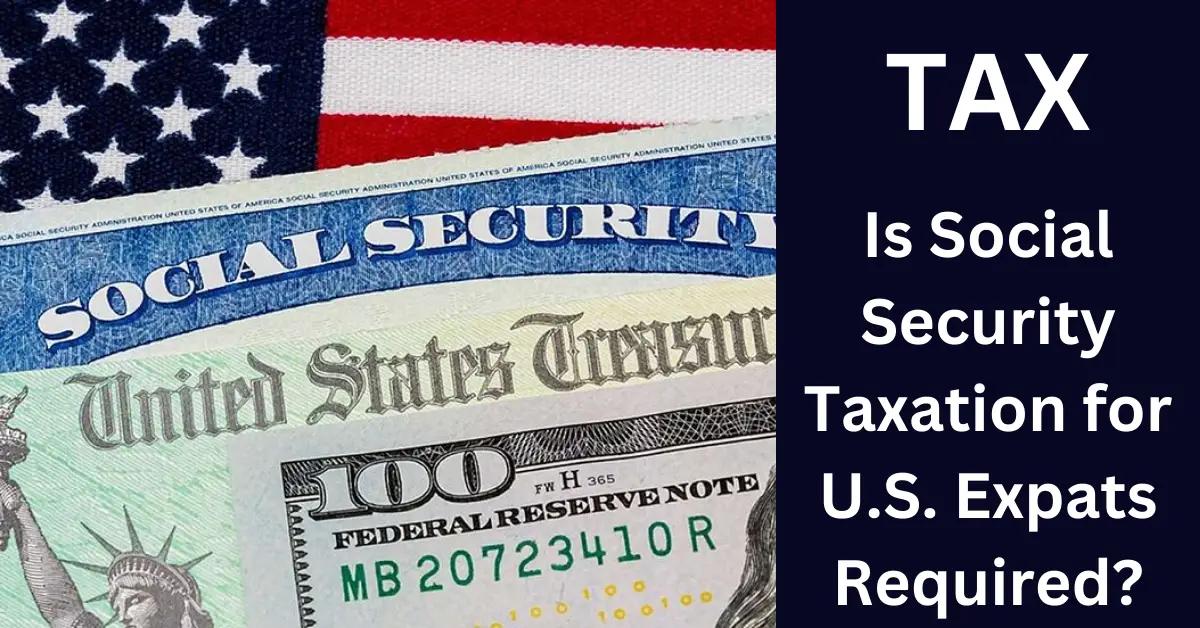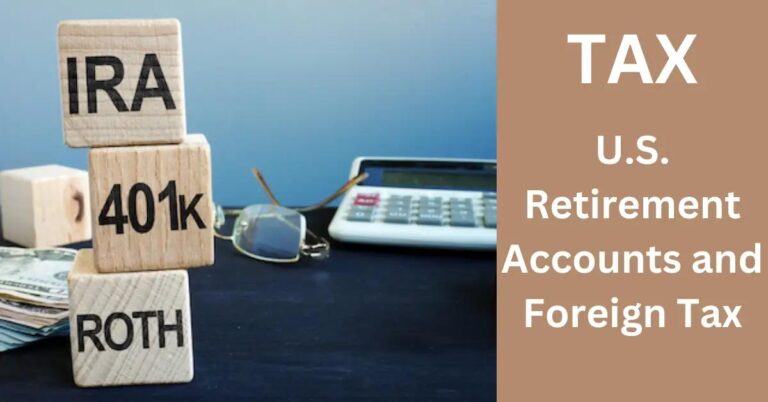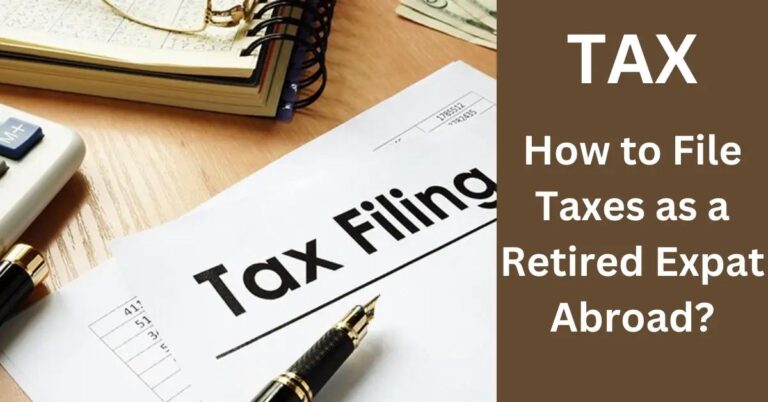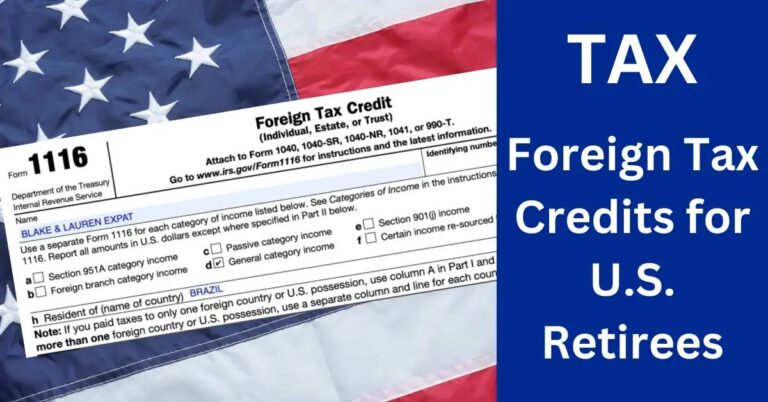TL;DR:
- U.S. expats must report and potentially pay U.S. taxes on Social Security benefits.
- Up to 85% of benefits may be taxable based on "combined income."
- Totalization agreements with over 25 countries prevent double taxation.
- Notable agreements exist with countries like Canada, the UK, and Germany.
- Foreign Earned Income Exclusion (FEIE) may reduce taxable income but doesn't exempt Social Security from taxation.
- Expats must comply with U.S. tax laws, including filing FBAR and IRS Form 8938.
- Social Security benefits can be received abroad, depending on the country.
- Tax strategies like maintaining U.S. bank accounts and understanding international tax treaties are crucial for expats.
As a global nomad navigating life as a U.S. expat, understanding Social Security taxation is key. Do you have to pay taxes on your Social Security while living abroad? Let’s dive into how U.S. expat taxes affect your Social Security benefits. We'll explore which countries offer tax exemptions, double taxation agreements, and how these impact your finances. Get ready to master this crucial aspect of expat life!
Are Social Security Benefits Taxable for U.S. Expats?
Do expats pay U.S. taxes on Social Security? In short, yes. U.S. citizens must report their Social Security income, even if they live abroad. This rule applies because Uncle Sam taxes all U.S. citizens' worldwide income. So, living overseas does not exempt you from U.S. Social Security taxes.
But how much tax you'll pay depends on your total income and other factors. Let's explore.
The U.S. government taxes Social Security benefits based on your "combined income." This includes your adjusted gross income, nontaxable interest, and half of your Social Security benefits. If your combined income goes over a certain amount, up to 85% of your Social Security may be taxable.
The same rules apply whether you live in the U.S. or abroad. But taxation can feel complex since local taxes might also take a bite of your benefits.
Do you pay taxes on Social Security if you live abroad? Again, the answer is yes. However, the details depend on the country you live in. Some countries have agreements with the U.S. These agreements help avoid double taxation. They determine where you owe taxes on Social Security.
For expats not covered by such a deal, the IRS will tax your Social Security benefits. But watch out for local tax laws. Each country has its tax code, affecting Social Security income.
It's essential to understand what impacts your taxes overseas. Income level, tax treaties, and residency rules matter. Consulting with a tax advisor experienced with expat taxes can help. This expert advice can save money and lessen confusion.
Staying tax compliant is a big part of living abroad. Always keep up with tax rules and changes. Even as an expat, being informed keeps you safe and ensures peace of mind.
Which Countries Provide Social Security Tax Exemptions?
Which countries exempt Social Security from U.S. taxes? Certain countries have agreements with the U.S. to prevent double taxation on Social Security. These are called totalization agreements. They help expats avoid paying Social Security taxes both in the U.S. and their host country.
Totalization Agreements Explained: These agreements exist with more than 25 countries. They ensure expats don’t pay Social Security taxes twice. Instead of paying in both countries, you only pay in one. This helps save money and avoids extra stress.
Notable Countries: Some countries with these agreements are Canada, the UK, and Germany. Such countries let you benefit from the agreements. This means your Social Security is not taxed by both countries. You still need to pay taxes in one, though. Each agreement is a bit different. They spell out which country gets your tax money. How are these countries chosen? It's based on how much people work and pay taxes between the U.S. and that country.
Understanding Benefits: Totalization agreements are crucial for U.S. expats. They decide which country's system you contribute to. If you live in one of these countries, you usually pay their Social Security tax only. For example, if you're in the UK, you pay the UK’s taxes if covered there.
Does your country have an agreement with the U.S.? Check the Social Security Administration. They explain which countries have deals and how they work. They also list countries with agreements. Understanding these agreements is vital for U.S. expats. Without them, you would face double taxation. Staying informed about these agreements can protect your money and rights.
How Can Expats Claim the Foreign Earned Income Exclusion?
Foreign Earned Income Exclusion (FEIE) Basics
Have you heard of the FEIE? It helps limit the taxes you pay to the U.S. on money made abroad. To qualify, your tax home must be in a foreign country. You also need to meet the physical presence test or the bona fide residence test. The physical presence test requires being in a foreign country for 330 full days in a 12-month period. Meanwhile, the bona fide residence test means you've lived in a foreign country for an unbroken tax year.
Applying for FEIE
Want to apply the Foreign Earned Income Exclusion to your earnings? You must file IRS Form 2555 with your tax return. It’s important to gather documents proving your foreign income and residency status. The process may seem hard. But it’s crucial for reducing your taxable income in the U.S.. If excluding all your income through FEIE is not possible, consider a Foreign Tax Credit. It can further decrease your tax obligation.
FEIE and Social Security Tax
Considering the impact of FEIE on Social Security taxation? It’s pivotal to know that income excluded under FEIE isn't exempt from Social Security tax. If you work for a U.S. company, you will still pay Social Security taxes. However, if you’re self-employed, you might negotiate with your tax advisor about any totalization agreements. These agreements may prevent dual coverage and tax in both countries.
Understanding the FEIE process and how it affects your Social Security tax is crucial. Keep informed and use available resources. Besides the IRS website, seeking help from tax experts can also provide guidance. Always ensure compliance to avoid penalties while living abroad.
Can You Still Receive U.S. Social Security if Living Abroad?
Yes, U.S. citizens can get Social Security benefits if they live overseas. However, the rules can vary by country. It is important to know the conditions that allow you to receive these benefits while living in another country.
First, where you live matters. Some countries do not allow direct Social Security payments. Before making a final move, check if your chosen country allows this. The U.S. Social Security Administration has a list of places where benefits are permitted.
Some countries have agreements with the U.S. to manage these benefits. These international agreements are called totalization agreements. Countries with these agreements often make it easier for expats to collect U.S. Social Security. Look into these before relocating.
To keep receiving benefits abroad, always ensure your records are up-to-date. The U.S. government needs to know your new address and banking information. Failure to report changes can disrupt your payments.
All U.S. citizens must report changes in their work status, too. If you start working in your new country, inform the Social Security Administration. This information helps maintain your benefits eligibility.
Benefit checks may be mailed or directly deposited. Direct deposit is often faster and more secure. Check if it is available in your destination country.
Taxes on your benefits may apply. The amount depends on tax treaties between the U.S. and your host country. Review these laws to avoid surprises at tax time.
If you are considering moving abroad, research well. Understanding these steps is crucial to enjoying your retirement without unexpected issues. Taking action now ensures a smoother transition to life overseas while maintaining your U.S. Social Security benefits.
How to Manage U.S. Tax Compliance as an Expat?
Figuring out U.S. tax rules while living overseas can be tricky. Many U.S. citizens living abroad wonder: Do I have to comply with U.S. tax laws as an expat? The simple answer is yes. All U.S. citizens, even those overseas, must file U.S. tax returns. The IRS guidelines for U.S. expats make this clear. Even if you don't owe tax, you must report your earnings.
You must be ready with your tax forms. Common forms include the FBAR (Report of Foreign Bank and Financial Accounts) and Form 8938 (Statement of Specified Foreign Financial Assets). These forms ensure you report foreign income and assets. Your Social Security benefits might also need reporting. Check the IRS Social Security Benefit Statement, Form SSA-1099, for details.
Now you may ask, How do I meet U.S. tax compliance standards abroad? Staying informed is key. You must know changes in IRS rules and any tax treaty details. Use a calendar to remember deadlines. Missing them can lead to penalties. Planning helps, especially if you live in a country with no double taxation agreement with the U.S.
The IRS knows expat taxes can be tough. They offer the Foreign Tax Credit. It helps reduce your U.S. tax by the amount paid to foreign governments. The aim is to prevent double taxation on the same income.
Thinking like an expat, managing U.S. tax like a pro means staying proactive. Seek guidance from U.S. tax experts who have expat knowledge. They can offer tailored solutions for your situation. With the right tools and information, fulfilling your U.S. tax obligations while living abroad won't be such a daunting task.
What Retirement and Tax Strategies Exist for Expats?
Do you lose Social Security benefits if you move to another country? No, you usually don't. But understanding how to keep them is vital. Many countries do allow you to collect U.S. Social Security benefits while living abroad. You just need to know how to maintain this eligibility.
Planning your retirement overseas requires careful thought. It's not just about enjoying the beaches in Spain or the mountains in Switzerland. You need strategies like expatriate financial planning to protect your assets and income. Explore options that make retirement smoother, like keeping a U.S. bank account to easily receive Social Security payments.
When thinking about tax implications of retirement abroad, consider how different countries handle taxes on Social Security. You should research international agreements. Some countries have agreements with the U.S. that lower double taxation risks. These can affect how your Social Security benefits are taxed, impacting your retirement income.
Managing retirement accounts and assets as an expat comes with unique challenges. Your existing retirement savings might need adjustment. Explore tax-efficient strategies for retirement overseas. This could involve using tax-deferred accounts smartly and thinking about currency exchange rates.
Would retiring in Thailand or Portugal give you more financial freedom? Both these places offer a lower cost of living. But each has its own tax conditions for retirees. Such conditions could significantly impact your net income abroad.
Always evaluate any international retirement tax considerations carefully. It might be helpful to talk to tax professionals familiar with U.S. and foreign tax laws. They can guide you about any potential financial pitfalls.
Finally, remember that financial rules can change. Stay informed by following reliable sources or regulations online. Knowing these details ensures you enjoy a stress-free retirement abroad. Your golden years should be about joy, not surprise tax bills.
Conclusion
Navigating U.S. taxes on Social Security for expats can be tricky. As an expat, you need to understand taxation rules, exemptions, and how to claim certain exclusions. Double taxation agreements can lighten your tax load, and knowing which countries offer exemptions helps a lot. You can receive benefits abroad, but staying compliant with U.S laws is key. Evaluate your retirement and tax options to plan smartly for the future. Remember, informed decisions help you make the most of your Social Security benefits while living abroad. Stay alert and keep informed to thrive as a global nomad.












